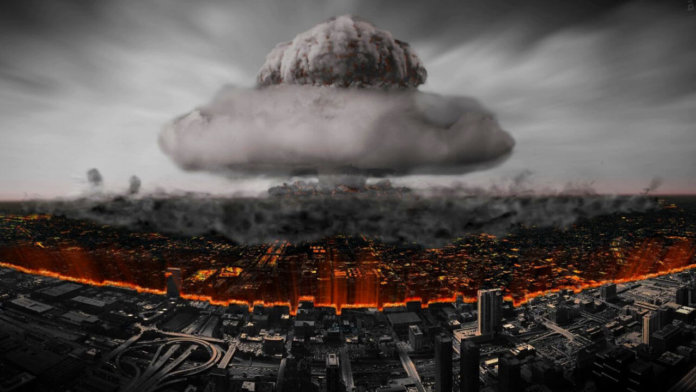The intense tensions that exist between the United States and North Korea, India and Pakistan, and a number of other states have raised questions about the likelihood (or, at worst, inevitability) of a global military conflict.
Let's take a look at the top 7 probable reasons why, in theory, World War III could start.
7. Lack of food
 Amid the economic downturn and rising inflation, the cost of food in the developing world has reached incredible levels. According to various estimates, residents poorest countries in the world spend on food from 50% to 70% of their income.
Amid the economic downturn and rising inflation, the cost of food in the developing world has reached incredible levels. According to various estimates, residents poorest countries in the world spend on food from 50% to 70% of their income.
In this development, those below the poverty line receive less and less food, while those at the other end of the pyramid of needs accumulate more and more resources.
According to The State of Food Security and Nutrition in the World 2018, 821 million people, or one in every nine people on earth, go hungry. And over 150 million children under the age of 5 are stunted due to malnutrition.
In addition, the rapid growth of the planet's population and climatic changes, for which many crops are not ready, and the decline in the level of groundwater, as well as many other factors, play a role in this problem.
6. Conflict between major powers
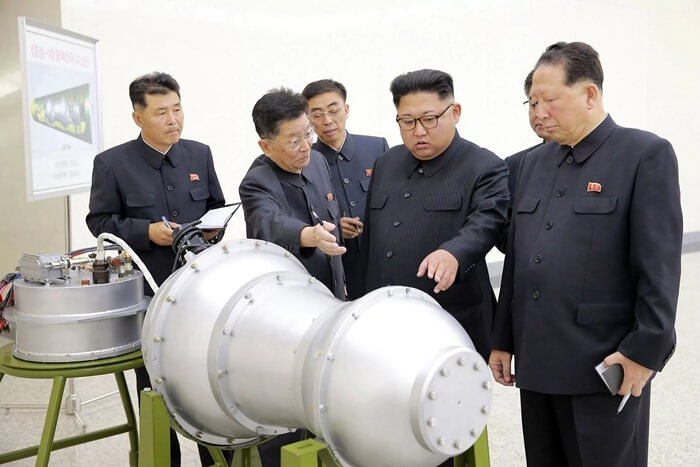 According to analysts of the American military magazine The National Interest, the Third World War will begin in one of the locations where the interests of the world's largest powers collided. These locations include:
According to analysts of the American military magazine The National Interest, the Third World War will begin in one of the locations where the interests of the world's largest powers collided. These locations include:
- South China Sea. There are a number of disputed islands that China claims.
- Ukraine. Recent events related to the attempt by Ukrainian navy ships to pass through the Kerch Strait from Odessa to Mariupol have led to increased tensions between Russia and the United States. And the British edition of The Daily Express even admitted that the Russian-Ukrainian crisis could develop into an open military confrontation between the countries.
- Persian Gulf. There, at any moment, a military conflict between Kurds, Turks, Syrians and Iraqis can begin.
- Korean Peninsula. Despite the fact that tensions in the region have eased somewhat over the past year, the leader of the DPRK, Kim Jong-un, is unpredictable.
5. Lack of water
 About 75% of the planet is water, but only 2.8% is fresh. Of these 2.8%, only 1% is easily accessible to the world's population.
About 75% of the planet is water, but only 2.8% is fresh. Of these 2.8%, only 1% is easily accessible to the world's population.
And if you believe the scientists who predict that in the next 100 years, the temperature on the planet will rise by 3.7-4.8 degrees compared to pre-industrial levels, we can assume that the value of water as the main resource for life will only grow.
By 2026 in the worst case, or in 2031 (with the most optimistic forecast), the average temperature in the world will rise by 1.5 degrees Celsius due to global warming.
Therefore, the struggle for freshwater resources may be one of the causes of the Third World War.
4. Lack of non-renewable resources
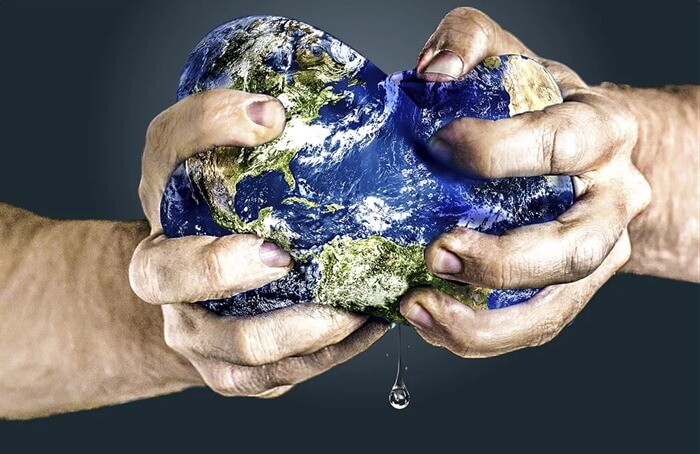 The world's non-renewable energy sources, such as coal, oil and natural gas, are disappearing too quickly.For example, according to a statement made by the head of the Ministry of Natural Resources of the Russian Federation, Sergei Donskoy, in 2016, the proven oil reserves in Russia will only last for 57 years. And what will happen when the shortage of "black gold", "blue fuel" and other non-renewable resources is felt all over the world? Strong countries will probably try to replenish their reserves at the expense of weak countries.
The world's non-renewable energy sources, such as coal, oil and natural gas, are disappearing too quickly.For example, according to a statement made by the head of the Ministry of Natural Resources of the Russian Federation, Sergei Donskoy, in 2016, the proven oil reserves in Russia will only last for 57 years. And what will happen when the shortage of "black gold", "blue fuel" and other non-renewable resources is felt all over the world? Strong countries will probably try to replenish their reserves at the expense of weak countries.
However, no one knows for sure how oil is formed, so it may be a renewable resource as well. As well as there is no reliable information about the oil reserves of the Earth.
In Russia, for example, data on oil reserves have not been officially published since Soviet times. This allows businessmen and politicians to manipulate numbers depending on the current economic environment.
3. Diseases
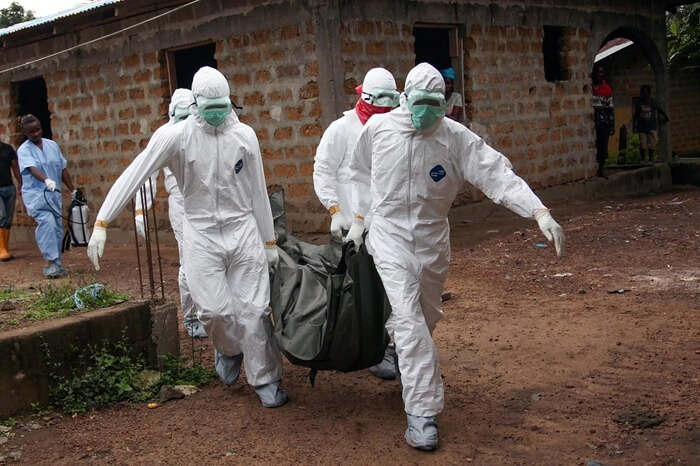 We live in an interconnected world, and the question is not whether an outbreak of a deadly disease will occur, but when it will happen. And more importantly, will the world be ready for it.
We live in an interconnected world, and the question is not whether an outbreak of a deadly disease will occur, but when it will happen. And more importantly, will the world be ready for it.
And the fact that he may not be ready was shown by the outbreak of the deadly Ebola fever in Guinea in 2014, which went beyond the country, affecting not only close states in West Africa (Liberia, Sierra Leone, Nigeria, Senegal, Mali) , but also the USA and Spain.
This case is unique because this is the first time such an epidemic began in West Africa, and local doctors simply did not have experience in dealing with it.
Of course, the zombie apocalypse shown in "Resident Evil" is unlikely to threaten humanity. However, trying to prevent an epidemic by regulating the movement of tens of thousands of people and denying them their right to access the outside world is not a step in the right direction.
Such discrimination, instead of treating illness, can lead to rampant violence and aggression for the right to life and health. Hitherto unknown diseases, as well as the presence or absence of medicines, could potentially lead to a catastrophic world war
2. Information technology
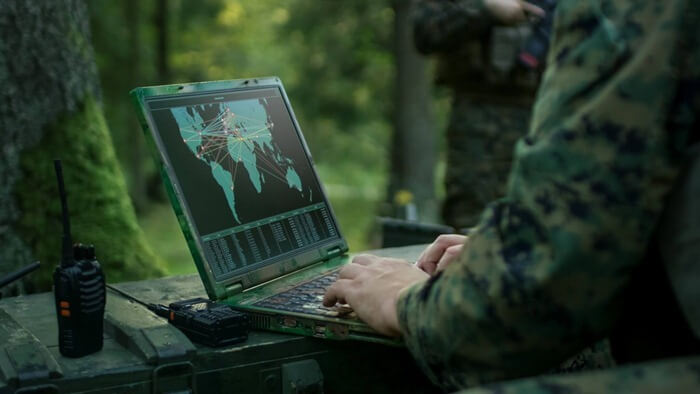 Do you know that the World Wide Web is a product of military development? The development of the Internet began in the distant 60s of the last century, when the US Department of Defense implemented a project to link individual computers installed in various organizations of the defense complex. So the US military wanted to make communication lines less vulnerable in the event of a nuclear war. If some nodes have been damaged,
Do you know that the World Wide Web is a product of military development? The development of the Internet began in the distant 60s of the last century, when the US Department of Defense implemented a project to link individual computers installed in various organizations of the defense complex. So the US military wanted to make communication lines less vulnerable in the event of a nuclear war. If some nodes have been damaged,
Therefore, the boom in the world of information technology is very important for understanding the mechanisms of relations between nations. Information has become a powerful means of waging war, both virtual and real. And those who have all the information are in power.
The question of what information should be kept confidential and what should be shared is the subject of serious debate today. If something that is confidential is revealed to the world, and this information leads to world-class scandals (as in the case of Wikileaks), then we may have already started World War III. And it is being conducted in cyberspace.
1. Arms Race
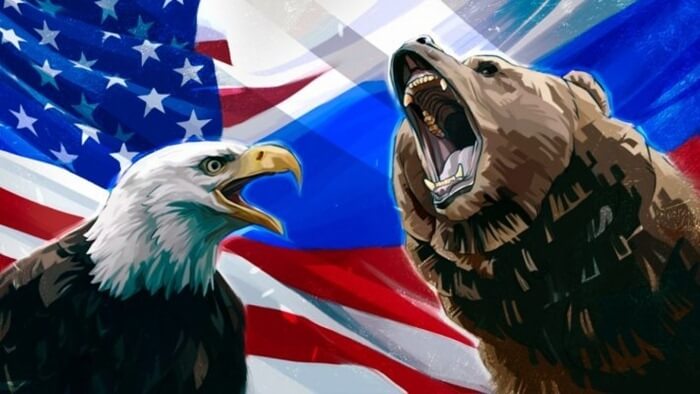 Growing investment in weapons, especially nuclear weapons, poses a potential threat to the world and future generations. For content the most powerful armies in the world and the modernization of military equipment, billions of dollars are allocated annually.
Growing investment in weapons, especially nuclear weapons, poses a potential threat to the world and future generations. For content the most powerful armies in the world and the modernization of military equipment, billions of dollars are allocated annually.
While weapons of mass destruction are mostly designed to deter a potential adversary, they have been used in the past. You probably already guessed that I will cite as an example the atomic bombings of Hiroshima and Nagasaki.
Trying to "keep weapons with weapons" countries are entering a crazy arms race, which can end only with several missiles scattering around the world in a few generations. After that, it will be completely unimportant who first unleashed the Third World War. After all, it will end the same for everyone.

